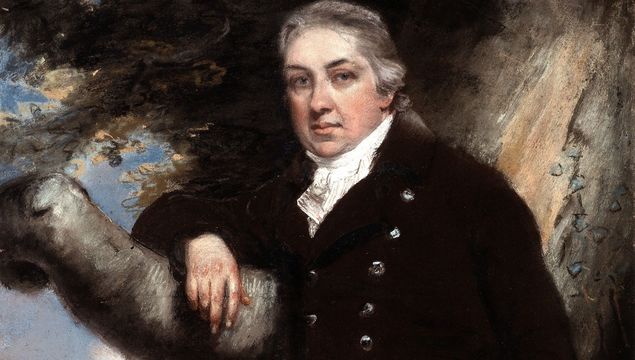
Edward Jenner.Wellcome Images
As the world celebrates the rollout of the coronavirus vaccine, we thought it fitting to make the birthday of the English physician whose pioneering work with smallpox vaccinations, lay the foundation for modern immunology and halted the spread of smallpox.
No disease in history has plagued humanity quite like smallpox. In Europe, it was reckoned that a consistent 20 percent of the population died from the disfiguring, virulent disease in the 18th century and before. A humble country doctor changed all that.
Born in the Gloucestershire village of Berkeley, Edward Jenner (1749-1823) decided early in life to follow medicine. He was apprenticed at age 13 to a surgeon near Bristol. In 1770, at 21, Jenner went to London to study at St. George’s Hospital. After two years, he returned to Berkeley and built a popular practice as the village surgeon. Jenner’s ever-inquiring mind, however, did not languish in a small town. He was elected to the Royal Society in 1788 and obtained his M.D. in 1792 from the University of St. Andrews.
Discovering the vaccine
It was well-known rural lore that milkmaids who got cowpox from the cows did not get smallpox. Jenner guessed that the secret lay in the pus from the blisters the milking lasses got from cowpox. In 1796 he tested the theory by inoculating a local boy with pus from the fresh cowpox scars of a local girl’s hands. The boy developed cowpox symptoms but recovered. Several months later, Jenner inoculated the boy with smallpox. The boy did not develop smallpox. Jenner successfully repeated his experiments, on his own family and others, and in 1798 he published the results.
Jenner’s discovery of what became known as “vaccination” (after Latin for cow), was quick to be lauded and applied. In 1803 the Royal Jennerian Society was founded in London to promote vaccination. Jenner continued to live quietly in Berkeley. His home is now a small museum to his life and work.
Jenner's legacy
“The world and its peoples” were declared free of endemic smallpox by the World Health Assembly in 1980—in large part thanks to Edward Jenner. Such was Jenner's influence that he was selected as a foreign honorary member of the American Academy of Sciences in 1806. Jenner died of a stroke in 1823 but his legacy lives on. In an era where vaccinations are questioned by certain segments of society, perhaps it would be wise for everyone to acknowledge the importance of Jenner's work.
Though Edward Jenner specifically declined to profit from his discovery, the British government voted him grants to make him comfortable as a humble country doctor. In 2002, Jenner was named in the BBC's 100 Greatest Britons, following a public vote.
Here's a short video on Edward Jenner:
* Originally published in July 2016.





Comments